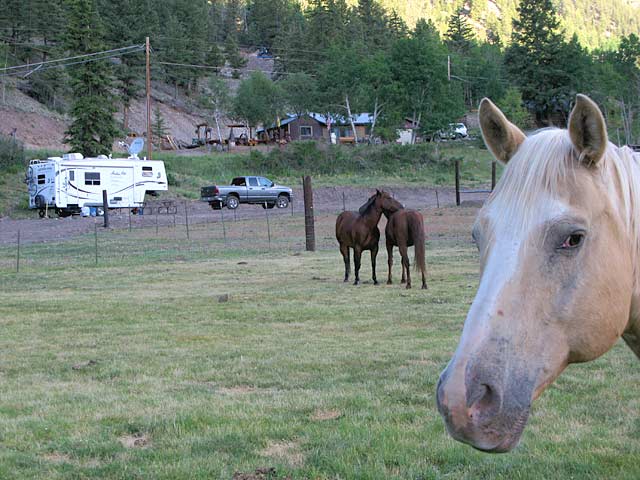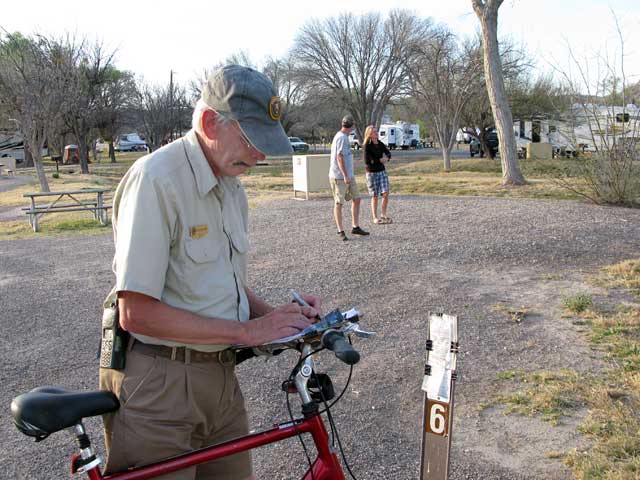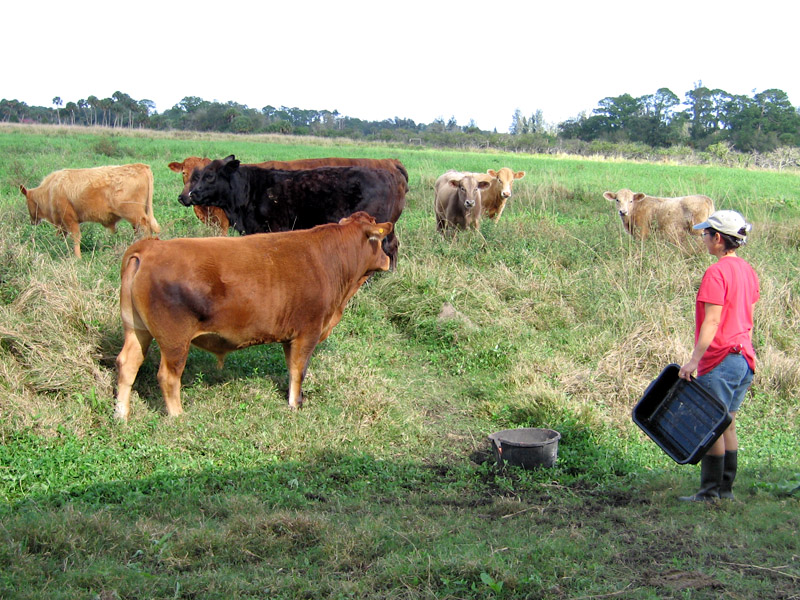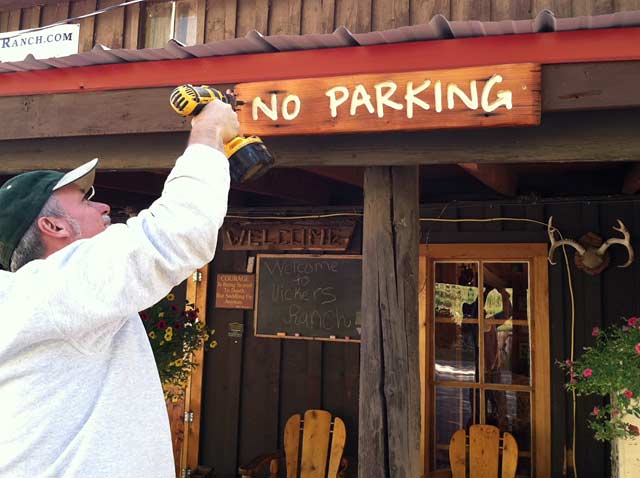Free campsites are disappearing in many places, especially near national parks and scenic outdoor attractions. But the good news is you can still score free rent close to popular destinations, through an arrangement called “workamping,” which is ideal for long-term RV travelers looking to save on campsite costs.

What is Workamping?
Workamping jobs come in many different flavors but the most common, basic arrangement works like this:
- An employee with their own self-contained rig is hired by an entity to help out for a few hours each week performing various tasks.
- In exchange for their labor, the RVer enjoys free or discounted campsite rent. Other perks like free laundry, propane and on-site activities are sometimes offered.
- This arrangement can last anywhere from a few weeks, to a season, to indefinitely.
Some employers will pay their workampers for any extra hours worked in addition to the agreed-upon number required to receive free campsite rent. Unfortunately, savvy workampers know that the pay is really just pocket change since typically it’s at or around minimum wage. A few employers will pay for all hours worked (in addition to a free or discounted RV campsite) but those rare arrangements still don’t pay employees much more than minimum wage.
Who Hires Workampers?
Most workampers are hired by RV parks, campgrounds and public campground maintenance contractors to assist in tasks such as:
- Visitor registration
- Minor housekeeping (i.e., cleaning guest bathrooms)
- Grounds maintenance
- Tourism-related activities
Usually no prior experience is required but a can-do, flexible, team player attitude by the workamper makes these simple chores much more pleasant. Occasionally workamper employers will look for more rigorous help from physically fit RVers to assist in areas such as:
- Pumpkin patch and Christmas tree sales
- Seasonal warehouse work
- Farm and ranch labor
- Retail sales
- Wildlife management
- Tour guide operators
- Oil field gate guards
The majority of workamper employers want to hire couples who can be trained at the same time and share the workload commitment. Although it’s harder for solo travelers to find workamping jobs, it’s not impossible. Another prerequisite that nearly all employers demand: workampers must arrive in their own self-contained RV that’s in good shape both inside and out.

How to Begin Your Workamping Job Search
Like any job, workamping isn’t for everybody. Much of the work can be tedious and physical, and those workampers who are dealing with the public can find it exhausting at times. Some employers don’t communicate very well with their workampers, which can lead to misunderstandings about what is expected in return for the free RV parking. Before you pursue a workamper job arrangement, consider these job search tips:
You’ll need a well-crafted resume that spotlights the kind of work you enjoy. Since most people work in an entirely different career field before workamping, you don’t need to over-emphasize your previous work experience unless it relates to the job for which you are applying. Instead, choose to play up those handy traits you possess which are in demand by workamper employers, such as:
- carpentry and electrical skills
- yard maintenance
- troubleshooting
- customer service
- critical thinking
- the ability to work independently
Another thing to consider: If you love being a team player and are more comfortable working in a structured environment with strictly-defined roles, a large entity such as the National Park Service might serve your needs well.
On the other hand, independent-minded individuals who enjoy a more free-form job with little supervision and lots of accountability, workamping at a small Mom and Pop, family-owned establishment might be best.

Keep in mind that physical limitations won’t prevent you from finding a workamping job, but they do make it more challenging to find a job that doesn’t require a certain level of fitness. Be honest with your potential employer and make sure they’re aware of any activity restrictions you have, before you get hired.
Finally, if you have any pets or children, you must be able to leave your little ones at home with a sitter during the workamping day.
Where to Find Good Workamping Jobs
Traditionally most workampers have been retired, full-time RVers with ample spare time on their hands. However over the last few years competition for jobs has grown fierce as more, working-age individuals discover the money-saving benefits of workamping while traveling.
Summer workamping jobs are easier to find than winter jobs, but regardless of the time of year the top three ways these individuals find workamping jobs is:
- Talking to other workampers while visiting desirable locations
- Applying directly with individual employers.
- Watching company postings on the Internet in places like Workers on Wheels
- Participating in Facebook groups like WeLoveWorkamping and WorkampingForFullTimeRVers.
- Enrolling with Workamper News, the oldest and largest workamping job search group.

Once you think you’ve pinpointed the best workamping job for your lifestyle, have a conversation with your potential employer to clarify all details about what is expected of you (and them) during the arrangement. Discuss critical aspects of the job and potential deal-breakers like:
- Seasonal commitment
- Hourly / weekly commitment (both paid and unpaid)
- Days on and days off expectations
- Job duties and physical requirements
- Campsite description, size and other physical characteristics
- Any bonus perks like free laundry or propane
Once you have a good understanding of your future workamping job, write everything down in a letter that both you and the employer sign. Getting to this point might not happen overnight but by taking the time to find a workamping arrangement that best suits your lifestyle and personality, you’ll eventually be rewarded with a mutually beneficial that saves you money on campsite rent while allowing you to enjoy new scenic destinations at a fraction of the price of other visitors.

Leave a Reply